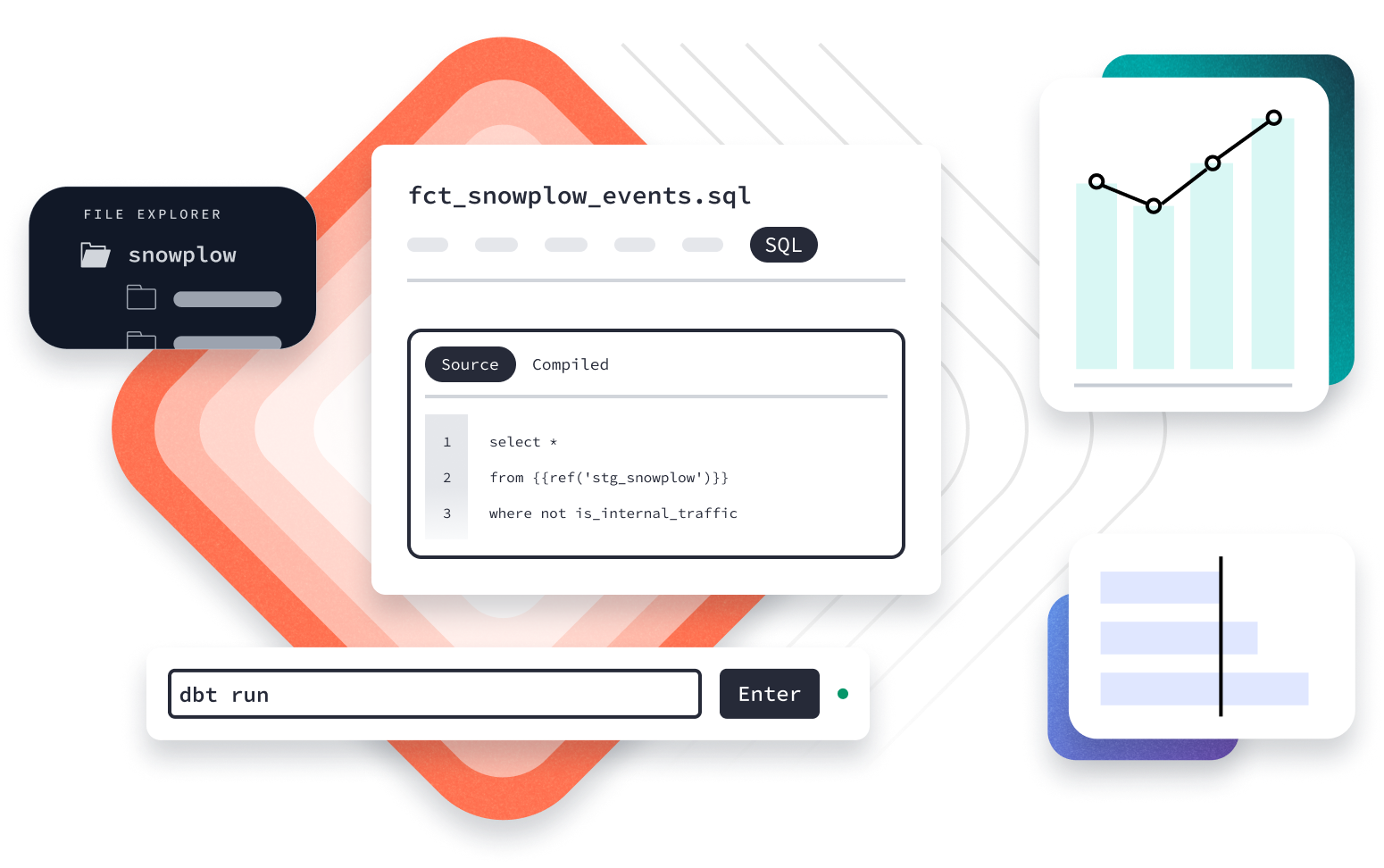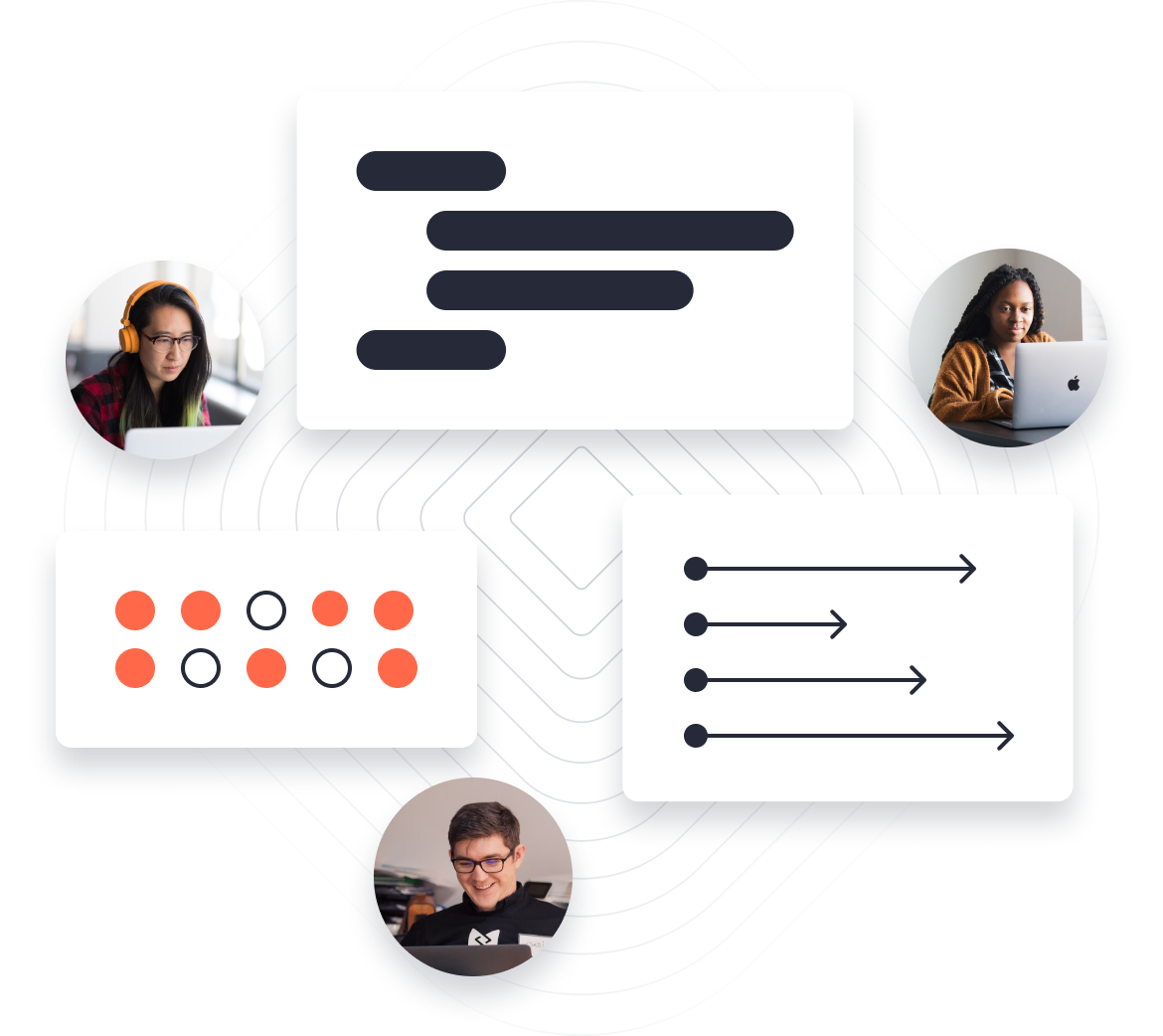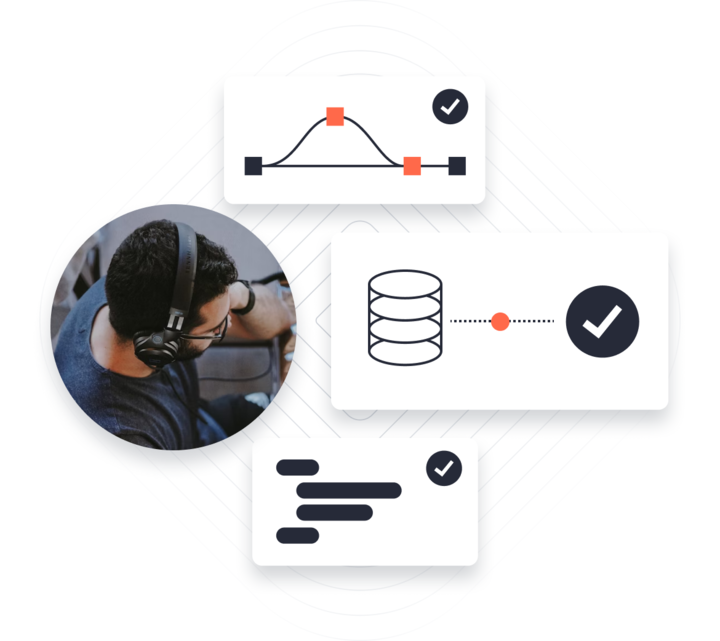Build trusted data products faster
Accelerate your data transformation process with dbt Cloud and start delivering data that you and your team can rely on.

Trusted by the best in data






Delivering reliable data shouldn’t be so hard
Ditch outdated tools that bog down your teams and impair data trust. There’s a better way to deliver data products that can free you from slow, costly, and unreliable data development.
Stop delivering data your teams can’t trust—or trace
Errors and data discrepancies break trust and affect wide-reaching business decisions. This leads to wasted time and resources and impacts brand equity.
Stop building data products in slow motion
Stakeholders lose faith with months-long data delivery timelines. The backlog is neverending and your teams are burnt out trying to keep up.
Stop wasting your budget on an outdated tech stack
Costs spiral as your team invests in ineffective tools or outdated skills. When they can’t prove ROI, data teams are seen as a liability instead of an asset.
Introducing the new standard in data development
Upgrade to a modern data development process that’s trusted by thousands of companies. dbt Cloud lets data teams reduce costs, ship data product faster, and build trust—for top-tier data development.

Connect to your data cloud platform
Easily connect your data directly to dbt Cloud. dbt Cloud integrates with Snowflake, Databricks, BigQuery, and all other leading data cloud platforms.

Build your first high-quality data product
Start building right away. Built-in features like pipeline break notifications, automatic documentation, and visible lineage help your team maintain data quality effortlessly.

Reuse what’s already been built for scalable data delivery
Save time and costs by allowing your team to re-use datasets, instead of rebuilding. Your team can leverage existing data to save time and increase productivity.
Supercharge your workflow with dbt Cloud
Discover why more than 30,000 companies use dbt Cloud to accelerate their data development process. Book a demo to learn how your team can transform its data delivery.
dbt Cloud makes data transformation easier, faster, and less expensive
Optimize the code, time, and resources that go into your data workflow with dbt Cloud. It’s a turnkey solution for data development with 24/7 support, so you can make the most out of your investments.
Trust your data and your data team
Be confident in the data your team delivers and rest assured that it’s trusted, accurate, and timely for your stakeholders.
Build reliable data products faster
Eliminate silos and bottlenecks with a collaborative workflow, self-serve analytics, and guardrails for fast and safe production.
Reduce the cost of producing insights
Refresh pipelines selectively, retire obsolete datasets, and optimize your data models to save costs.